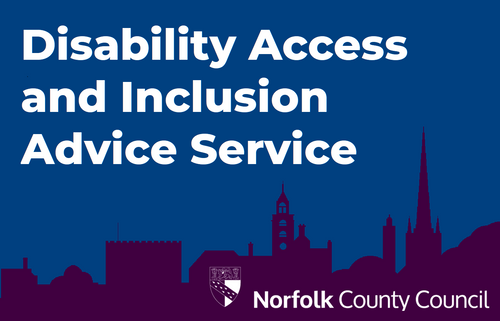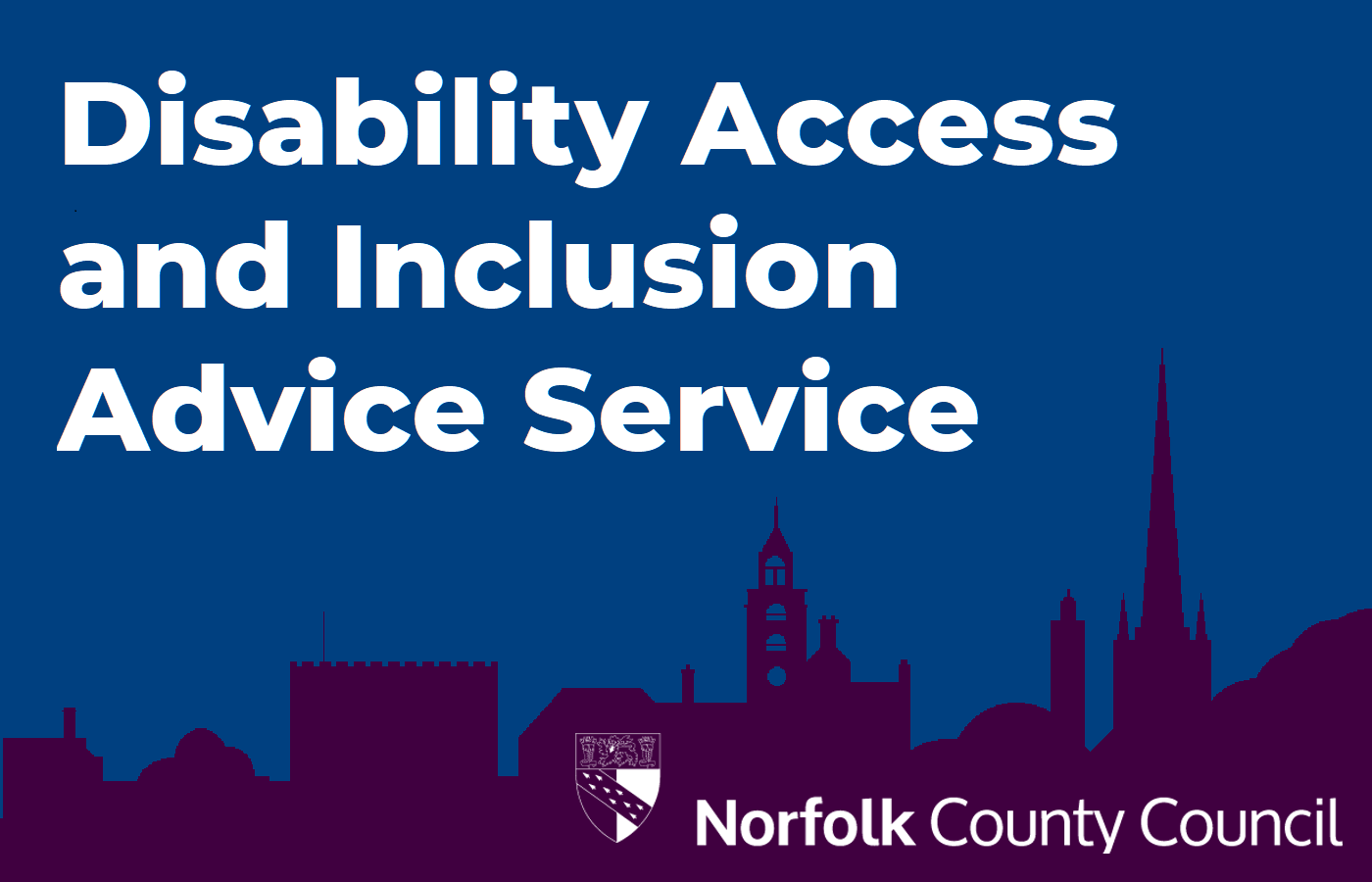
Mar 10, 2023
Disability Access and Inclusion Advice Service
Norfolk County Council offer expert advice on disability access and inclusion
Published by: Norfolk County Council
Expert, award-winning advice service on disability access and inclusion.
The team can offer expertise on a broad range of accessibility considerations, working within the social model of disability and considering the needs of people with all kinds of disability.
Accessibility Auditing
Gressenhall Museum was visited by Neil Howard and Dr Ruby Allen from the team to conduct an accessibility audit of the site and service. Their audit report detailed recommendations for accessibility improvements and advised on the priorities for the Norfolk Museums Service and MONUMENT Team to consider.
The recommendations would improve accessibility for everybody, including people living with dementia and their carers. Highlighted areas included site signage, accessible toilet facilities, and ease of access to different areas within the museum.
Both Neil and Ruby are experts in their field with Ruby having also written research papers on dementia accessibility. Their specialist input at this later stage in the Norfolk pilot project will help to ensure the pilot’s legacy is embedded in best practice.
More about the service
The team works with current legislation and best practice for accessibility to offer:
- Accessibility audits of buildings, environments, and services, with recommendations for improvement provided within the report
- Access and inclusion advice to support individual development projects, or wider developments with ongoing service agreements
- Access statement writing
- Access advice to enhance accessibility of documents and digital content (including compatibility testing with current access tools)
- Training on disability at different levels, e.g., disability awareness, disability equality, and disability inclusion
- Support with engaging stakeholders, e.g., engagement with disabled people.
Expert Advice
The team include accessibility advice for people living with dementia as part of their service. Considering accessibility can improve the inclusivity of venues and services, improving access for people living with dementia and their carers.
Such improvements may include:
- Provision of wayfinding support using both colour and signage schemes
- Alterations to building materials to support acoustics and lighting levels
- Alterations to décor to create comfortable ambience
- Provision of resting space within internal and external environments
- Provision of appropriately designed toilet facilities
- Provision of accessible information and communication support
- Alterations to buildings to provide physical access for people with limited mobility
- Guidance on improvement to policies and practices to support better inclusion
- Staff Training on inclusive language, etiquette, and best practices.
To find out more about the service, please email a member of the team: accessibility@norfolk.gov.uk
